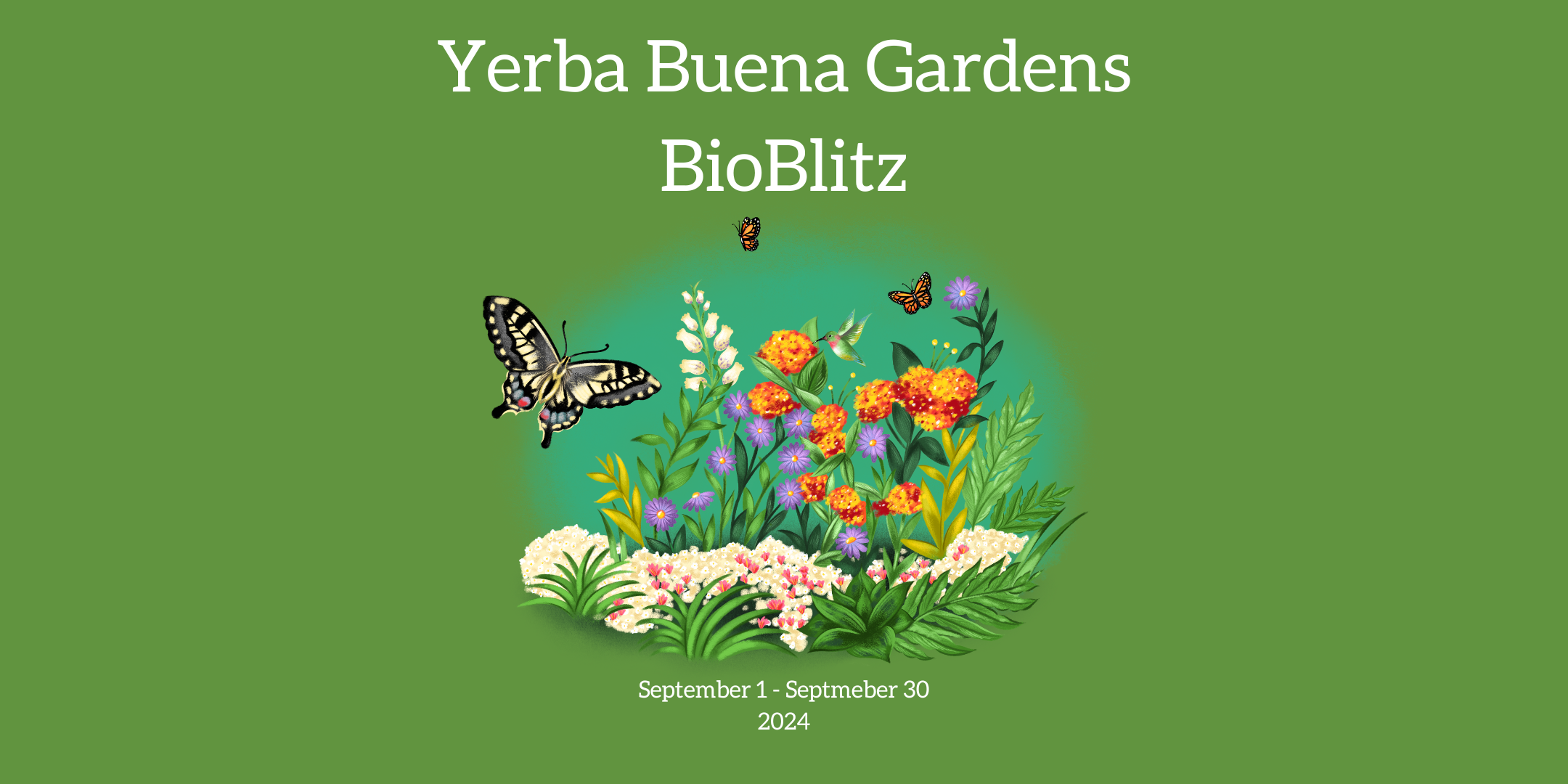September 01, 2024 1:00 AM to 11:00 PM
Parks for Pollinators 2024: Yerba Buena Gardens

Join Yerba Buena Gardens Conservancy and parks throughout the country in a fun challenge to see how many pollinator species can be documented this September. It is easy to participate by joining an event or making observations on your own using the iNaturalist app. With the iNaturalist app, you simply take a picture of a pollinator (e.g., bee, butterfly, bat, etc.) or plant, and the online community will help identify the species. You can participate by exploring the nature and wildlife in Yerba Buena Gardens. Any observation you make will count during our event. Please visit this link for more information!
Park and recreation agencies from across the country will be hosting Parks for Pollinators BioBlitz events throughout the month. You can learn more about the Parks for Pollinators initiative and see which agencies are participating by visiting nrpa.org/BioBlitz.
The Parks for Pollinators BioBlitz is organized by the National Recreation and Park Association (NRPA).
Community science can advance scientific knowledge and foster public engagement. By involving individuals from diverse backgrounds, community science projects enable widespread participation in the scientific process, breaking down traditional barriers between scientists and the public. This empowers community members to actively contribute to research and promotes a sense of ownership and understanding of scientific issues.
A bioblitz is a period of biological surveying that aims to identify and document as many species as possible within a specific area and defined time frame. During an iNaturalist bioblitz, participants use the iNaturalist app to capture and upload photos of species they encounter during the event. These observations are then shared with the iNaturalist community, allowing experts and peers to assist in species identification. The iNaturalist platform uses image recognition technology and community verification to help identify species and provide accurate information. This collaborative approach promotes community science by engaging a wide range of participants in documenting biodiversity, contributing to scientific research, and creating valuable datasets.
